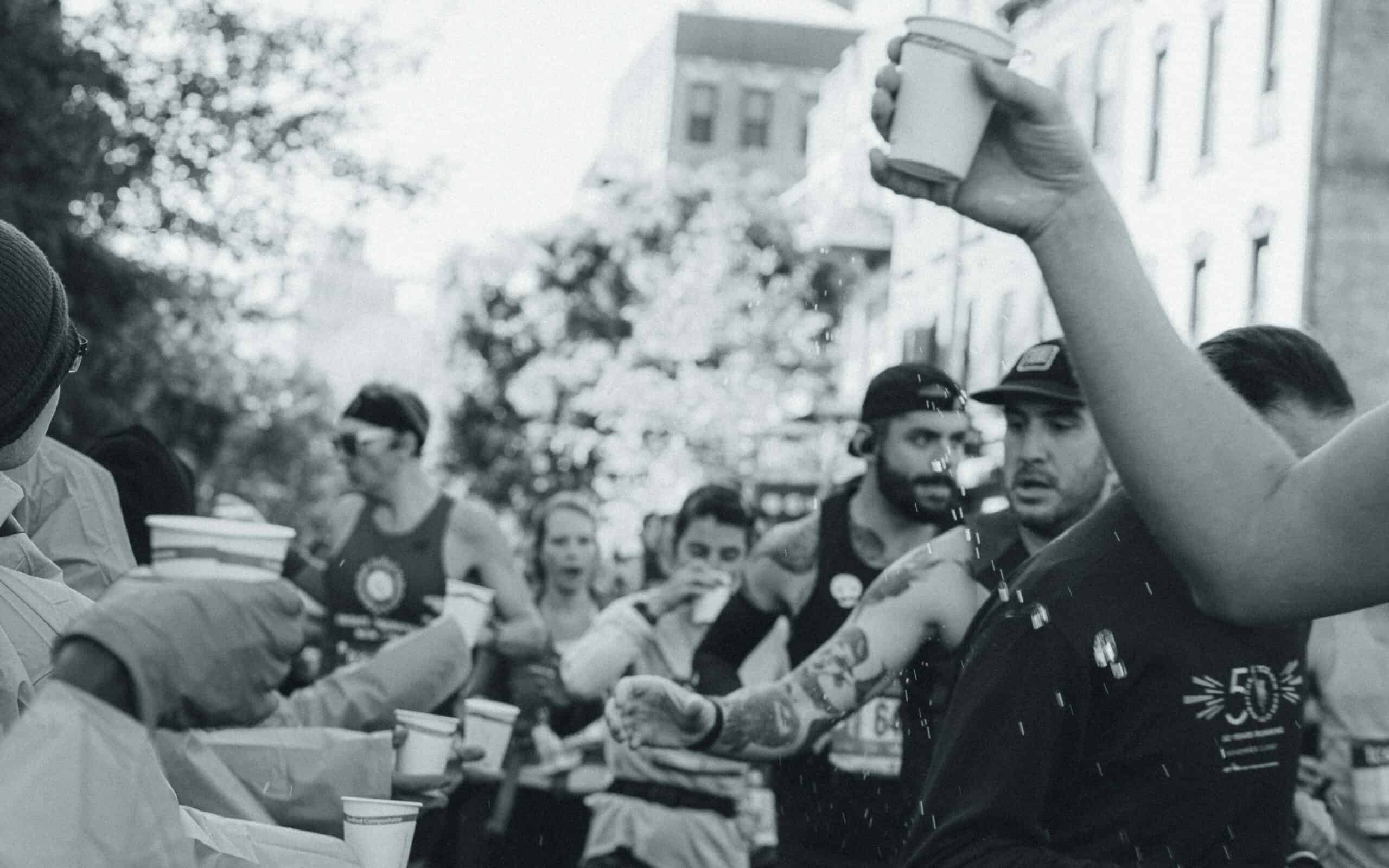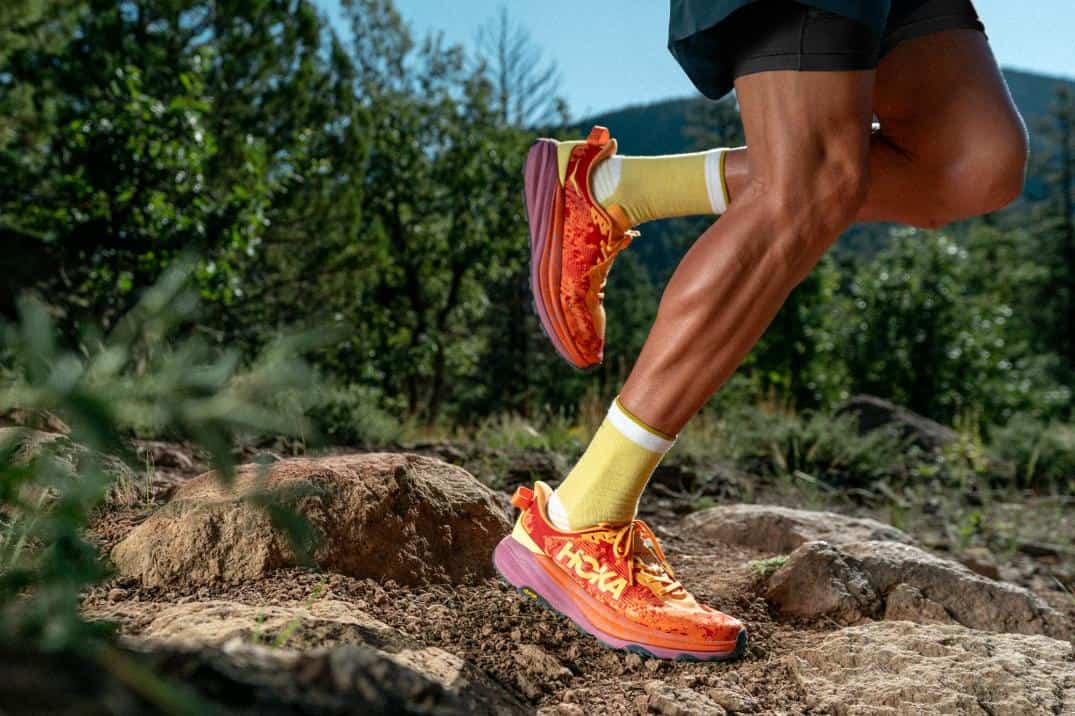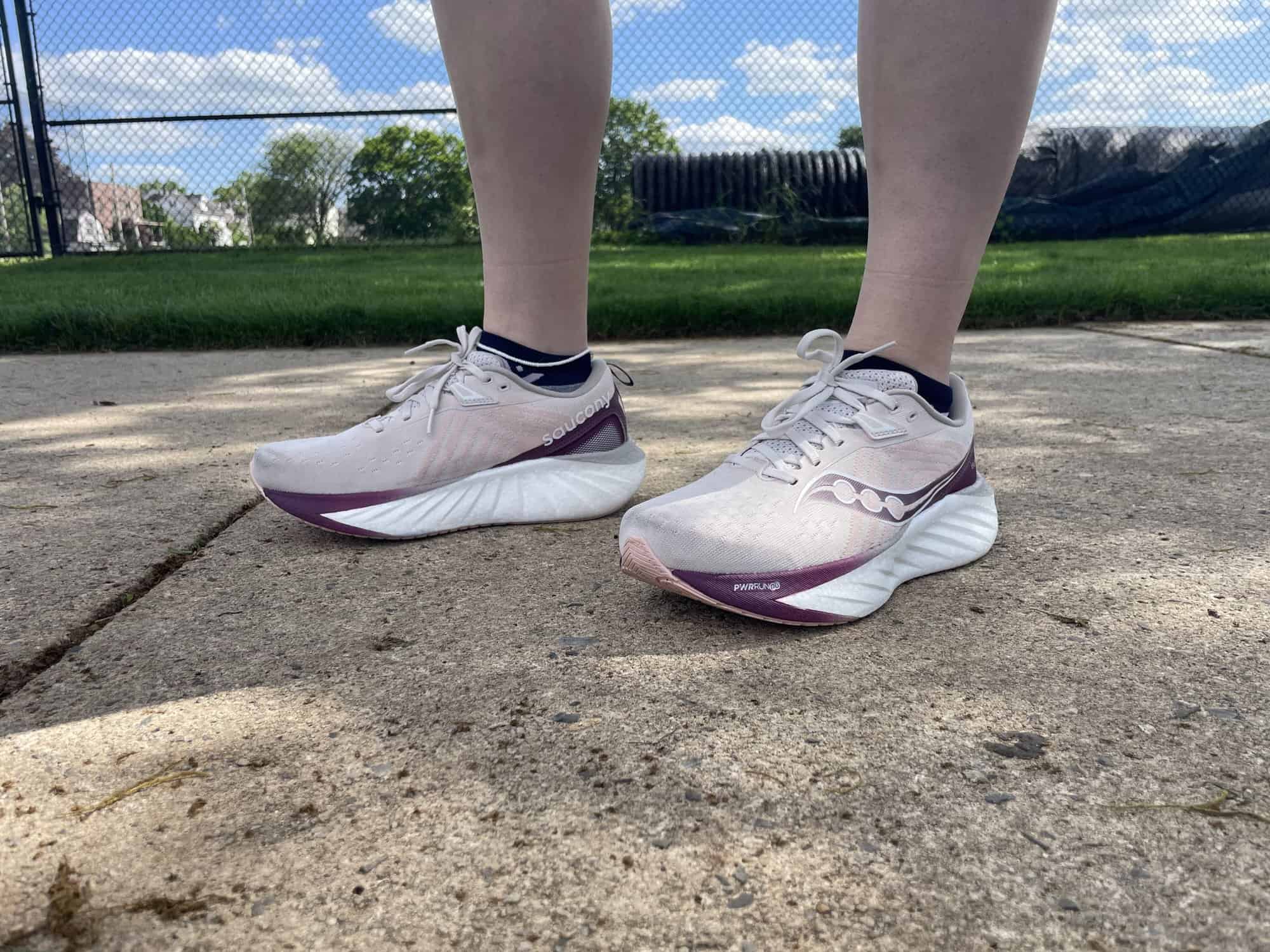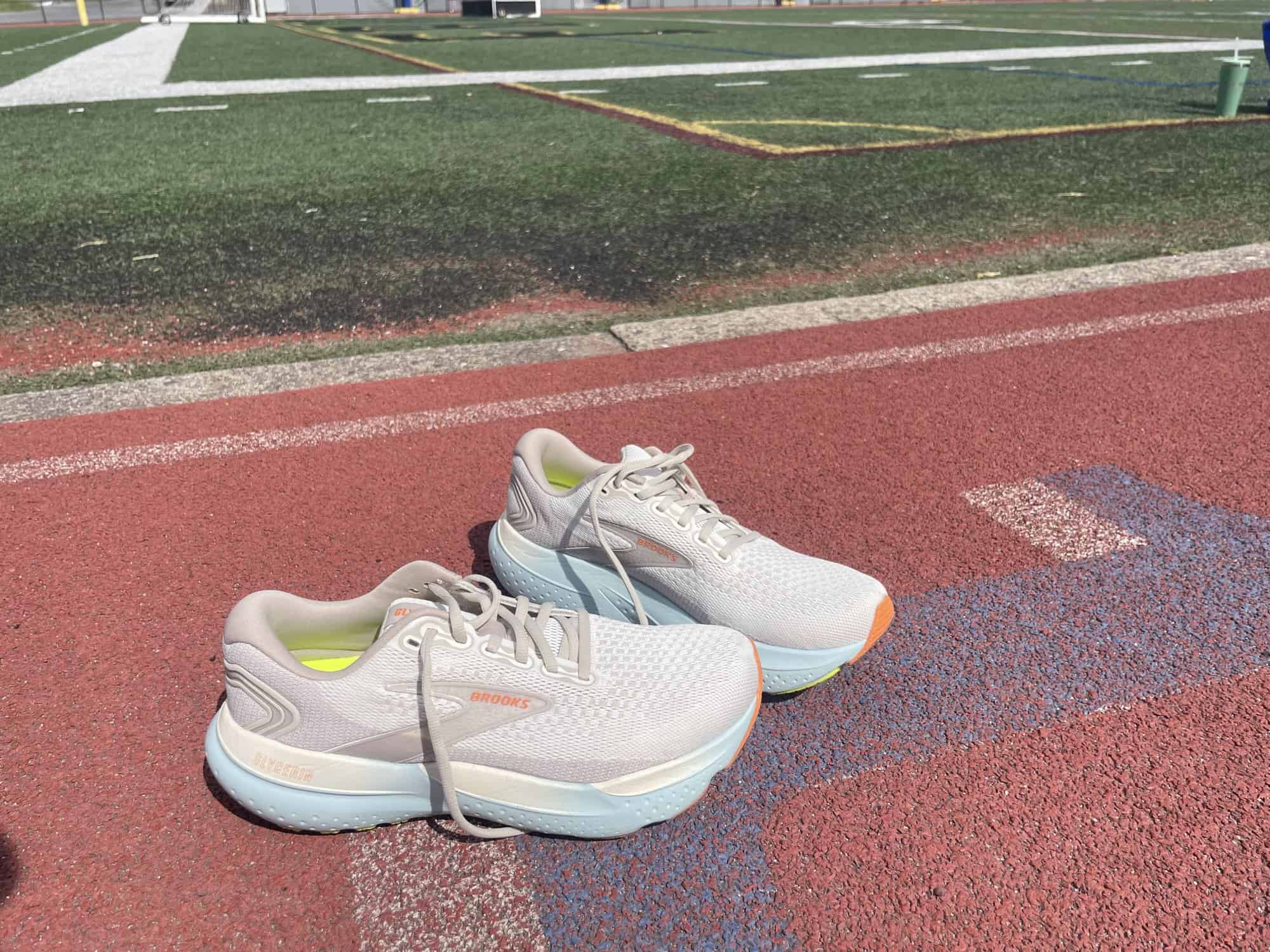
The benefits of electrolytes for runners
Most long-distance runners know that nutrition during a long run is crucial to avoiding the infamous bonk. But, many runners seem to forget about the importance of getting enough electrolytes before, during, and after a race.
Electrolytes, mainly sodium, potassium, and magnesium, are important minerals that regulate fluid balance, nerve function, and muscle contraction. For half marathon runners, electrolytes play a crucial role in rehydration, preventing muscle cramps, and sustaining energy levels.
Ensuring that you have adequate electrolyte levels before, during, and after a run can help improve your running performance. Sophie Lalonde-Bester, RD, is a sports dietitian and endurance athlete. Here are some of her recommendations for choosing the best electrolytes for runners.
What is in an electrolyte supplement?
Electrolyte supplements are designed to replenish the minerals and salts lost during physical activity and sweating. Generally, most contain a combination of sodium, potassium, magnesium, calcium, chloride, and phosphorus to prevent electrolyte imbalance.
Some electrolyte supplements may also contain additional ingredients like vitamins, proteins, or carbohydrates to provide supplemental nutritional benefits for the athlete.
When we eat carbohydrates, like certain electrolyte supplements, a portion of those carbs is not digested and goes straight to the large intestine where it ferments and produces gas. On a day-to-day basis, this is a helpful process in optimizing gut health. However, during a long run, this may cause bloating, gas, distention, and stomach discomfort.
Related: 14 Nutritional Supplements for Runners
So, when choosing an electrolyte source, it’s important to experiment during marathon training runs to determine which ones you like best. Do not wait until race day to try something new, or you might just be running to the bathroom instead of the finish line!
When to take electrolytes during your run
Here are some general guidelines for when to take electrolytes during a run:
1. Before the run: Start your run well-hydrated. Have a meal or snack, drink water, and/or consume an electrolyte supplement sometime before you set out.
2. During shorter runs: During runs less than an hour long you may not need to consume electrolytes. However, if you feel thirsty or notice signs of dehydration (such as dry mouth, dark urine, or dizziness), consume an electrolyte source. Always have something packed in case!
3. During longer runs: For runs lasting longer than an hour, have an electrolyte serving every 30-60 minutes.
Remember that everyone’s rehydration and electrolyte needs are different. You may find that more or less of the above recommendations works for you.
How much electrolytes to take during your run
Aim to have an electrolyte source every 30-60 minutes and 300-600mg of sodium per hour.
For context, one GU energy gel contains around 50mg of sodium, one SaltStick salt tablet contains 215mg of sodium, and one Nuun Sport tablet contains 300mg of sodium.
What to look for in electrolyte supplements for runners
Caffeine
Some science in sports experts suggest that caffeine may improve performance. Evidence from 2019 suggests that approximately 3mg of caffeine per kg of bodyweight before or during endurance activities is optimal.
This means a 165 lb person (75kg) would be recommended to have 225mg of caffeine on event day. This could look like one cup of coffee before running (150mg) plus one or two gels/chews/mixes containing caffeine (40-80mg) during the event.
Some of the best electrolytes with caffeine are: Nuun Sport + Caffeine Electrolyte Tablets that have 40mg per serving. Skratch Labs Hydration Mix with Matcha which have 16mg per serving. And, Clif Bloks Energy Chews with Caffeine which have 50mg per serving.
Keep in mind that if you are competing in professional or sanctioned events there may be regulations on caffeine levels. It is also advised to limit caffeine intake if you are pregnant.
Sugar Free
There is a time and place for low sugar electrolyte sources such as Nuun tablets (more about these below). Sugar-free electrolyte sources can be a good option for runners who are watching their added sugar intake or who have specific dietary needs, such as those with diabetes.
However, it’s important to note that some sugar-free electrolyte sources may contain artificial sweeteners, which may cause digestive issues for some people. Nuun tablets contain stevia, GU tablets contain stevia and monk fruit extract, and Skratch Labs mix uses stevia and monk fruit too.
Overall, sugar, rapid acting carbs, and added sugars are important energy sources on long runs! If you choose to use sugar-free electrolyte sources on long runs, make sure you have a source of fuel as well (such as energy gels, gummies, chews, etc).
The Best Electrolytes By Type
Now that we’ve discussed how much electrolyte to take and when to take them, let’s break down the various forms that electrolytes come in:
The Best Electrolyte Gel for Runners
The first electrolyte type we’re tackling is the gel.
Gels are easy to pop into your pocket or sports bra and can be consumed quickly. The best electrolyte gel for runners depends on individual preferences and needs, but here are some of the most popular options.
Many of these can be purchased on Amazon or in specialty running stores:

GU Energy Gel: The Gu Energy Gel contains a blend of electrolytes, amino acids, and carbohydrates. Some flavors contain caffeine and most have 100 calories per packet.

PowerBar PowerGel: The PowerBar gels contain a blend of electrolytes and carbohydrates. Both GU and PowerBar gels are made with maltodextrin and fructose, which are easily digestible carbohydrates. Powerbar has five flavors to choose from with most containing 110 calories per packet, one of which contains caffeine.

Honey Stinger Energy Gel: These are made with honey and organic tapioca syrup. They contain a blend of electrolytes, B vitamins, and carbohydrates. B vitamins are said to maximize energy output during a strenuous activity.
We recommend experimenting with different types of gels during training runs to determine which one yields the best results for your body. We can’t emphasize this enough! Sometimes, trial and error is the best strategy.
The Best Electrolyte Drink Tablets for Runners
Next, let’s cover drink tabs. Electrolyte drink tablets are dropped into a water bottle and are a convenient way for athletes to replenish electrolyte levels and stay hydrated during long runs.
Our favorite electrolyte drink tablets are the Nuun Sport electrolyte tablets. Each tablet contains a blend of sodium, potassium, magnesium, and calcium.
The downside of only using electrolyte drink tablets is that they are low in sugar and calories, so cannot be used as fuel alone. In addition to drink tablets, be sure to have 15-30g of carbohydrates every hour during events longer than one hour. This can be obtained through gummies, gels, dried fruit, etc.
The Best Electrolyte Drink for Runners
Up next are powders which, when mixed with water, make up the best electrolyte drink for runners. Powdered electrolyte sports drinks have an advantage over tablets because powders contain sugars and glucose. Quick-acting energy in the form of carbohydrates is important in long-distance running.
Don’t get us wrong, tablets have their place, but if you prefer to limit the number of gels and food you eat on a long run to reduce the amount of variables during your run, powdered sports drinks are your friend. Here are some of the best electrolyte drinks for runners that come in powdered form:

Gatorade Endurance Powder: This special Gatorade formulation is better than regular Gatorade and Powerade because it contains nearly twice the sodium and more than three times the potassium of regular Gatorade. Plus, since it comes in powdered form, you can temper the concentrations for your taste and electrolyte needs.

Skratch Labs Hydration Mix: Skratch Labs electrolyte mix is flavored with natural ingredients like real fruit and no artificial sweeteners. It’s designed to be easy on the stomach and not be overly sweet.

Tailwind Nutrition Endurance Fuel: This electrolyte mix is designed to be enough to be your sole source of fuel while also being easy on the stomach. The carbohydrate source is dextrose and sucrose, which are easy to digest sugars.
The Best Electrolyte Chews for Runners
Electrolyte chews are another convenient option for electrolyte replacement if you prefer to eat something (compared to purely drinking your fuel) or you prefer to have the option to spread your intake out (rather than having to down a gel in one go).
When it comes down to choosing between gels and chews, personal preference trumps all! Both contain electrolytes and carbohydrates, which are the most important fuels for your body during a workout.
Below are some of the popular options for electrolyte chews for runners:\

Honey Stinger Organic Energy Chews: A popular choice among runners, these contain a blend of electrolytes, carbs, honey, and fruit juice. They’re also certified organic, gluten-free, and non-GMO, making them a great option for every runner with dietary restrictions.

GU Energy Chews: These are made with a blend of carbohydrates (maltodextrin and fructose) for maximal carbohydrate absorption and utilization. They also contain amino acids for muscle recovery and electrolytes, of course. GU chews come in several flavors.

Clif Shot Bloks: These are made with organic ingredients and contain a blend of electrolytes, carbohydrates, and caffeine (in some) for a quick energy boost.
The Best Electrolytes by Distance
The best electrolyte for runners varies depending on the distance of your run.
The Best for Light Runs
For light runs less than an hour – water is often sufficient for hydration. Individual rehydration needs vary depending on factors like temperature, individual sweat rate, and personal preferences. If you live in a very hot climate or sweat a lot, an electrolyte source like Nuun Sport tabs is never a bad idea.
The Best for Longer Runs
Do not wait until you are hungry or thirsty on a long run to start fueling. Consume 16-24 ounces of fluid with electrolytes every hour to keep yourself hydrated. And consume carbs every 30 minutes, aiming for at least 15-30g of carbohydrates per hour.
Long run sports nutrition deserves an entire separate blog post. But just know that you don’t need to rely on expensive electrolyte chews as your carb source. You can enjoy foods like gummy bears and dried fruit on your runs as long as you are also having electrolytes.
So, if you are planning to fuel with food, carry an additional source of electrolytes and fluids, such as Nuun tabs or a powdered drink mix in water.
The Best Tasting Electrolyte for Runners
Since taste is subjective, what you might consider the best tasting electrolyte may not be the same for another endurance athlete. In general though, Nuun, GU, Clif, Skratch Labs, and Tailwind are generally well-liked, popular brands.
Many athletes prefer homemade electrolyte drinks. There are tons of recipes out there, but we suggest that you consult a registered dietitian who can help you ensure your recipe suits your electrolyte needs.
And while we’re on the topic of natural fluids, coconut water often has more potassium than the average sports drink but has very little sodium, the main electrolyte lost in sweat. If using coconut water, read the label to make sure you’re getting enough electrolytes and opt for something else if you can.
The Best Electrolytes for Runners Who Sweat A Lot
If you have a high sweat rate (like if your shirt has salty white stains after a run on a warm day), you will need additional electrolytes to maintain normal sodium levels. Some of the best electrolyte sources for runners who are heavy sweaters are:
SaltStick Caps: These are designed specifically for athletes who sweat heavily because losing salt can lead to hyponatremia (low blood sodium). They come in a capsule form and are easy to take during exercise. If you can’t get your hands on salt tablets, sodium chloride (table salt) can also do the trick but consult a dietitian to get your math down.

Skratch Labs Hydration Mix: As mentioned earlier, Skratch Labs hydration drink mix contains a great electrolyte balance. A true perk of hydration mixes is that sweaty endurance athletes can simply add more mix to their water, maximizing the amount of electrolytes taken in.

LMNT Electrolyte Drink Mix: One packet contains 1000mg of sodium. If you sweat a ton, this is a great product for you.
FAQ
Do electrolytes help with running?
Electrolytes play a crucial role in maintaining hydration, preventing muscle spasms, preventing muscle weakness, and sustaining energy levels in runners.
When should I take electrolytes when running?
For runs lasting longer than an hour, have an electrolyte source every 30-60 minutes.
Should I drink electrolytes before or after running?
Start your run well-hydrated. If your run is over an hour long, consume electrolytes during the run.
What is the most important electrolyte for running?
Sodium is one of the most important electrolytes for running as this is the body’s main loss when sweating.
What are the benefits of taking electrolytes?
Electrolytes play a role in maintaining fluid balance, regulating blood pressure, supporting muscle contraction, and optimizing nerve function.
How do I know if I need to take electrolytes when running?
If your run is over an hour long or if you get very sweaty you should take electrolytes when running.
What is the difference between an electrolyte and a sports drink?
Electrolytes can be consumed separately or as part of a sports drink, but a sports drink typically contains a combination of electrolytes, carbohydrates, and water.
What are some electrolytes that have benefits for runners?
Sodium, potassium, magnesium, chloride, and phosphorus are important electrolytes for runners.
What are the health benefits of electrolytes for runners?
Electrolytes offer several health benefits for runners including hydration, energy, improved muscle function, and enhanced recovery.
How much electrolytes should I take after running?
In general, aim for 16-24 ounces of water with electrolytes for every pound lost during exercise.





